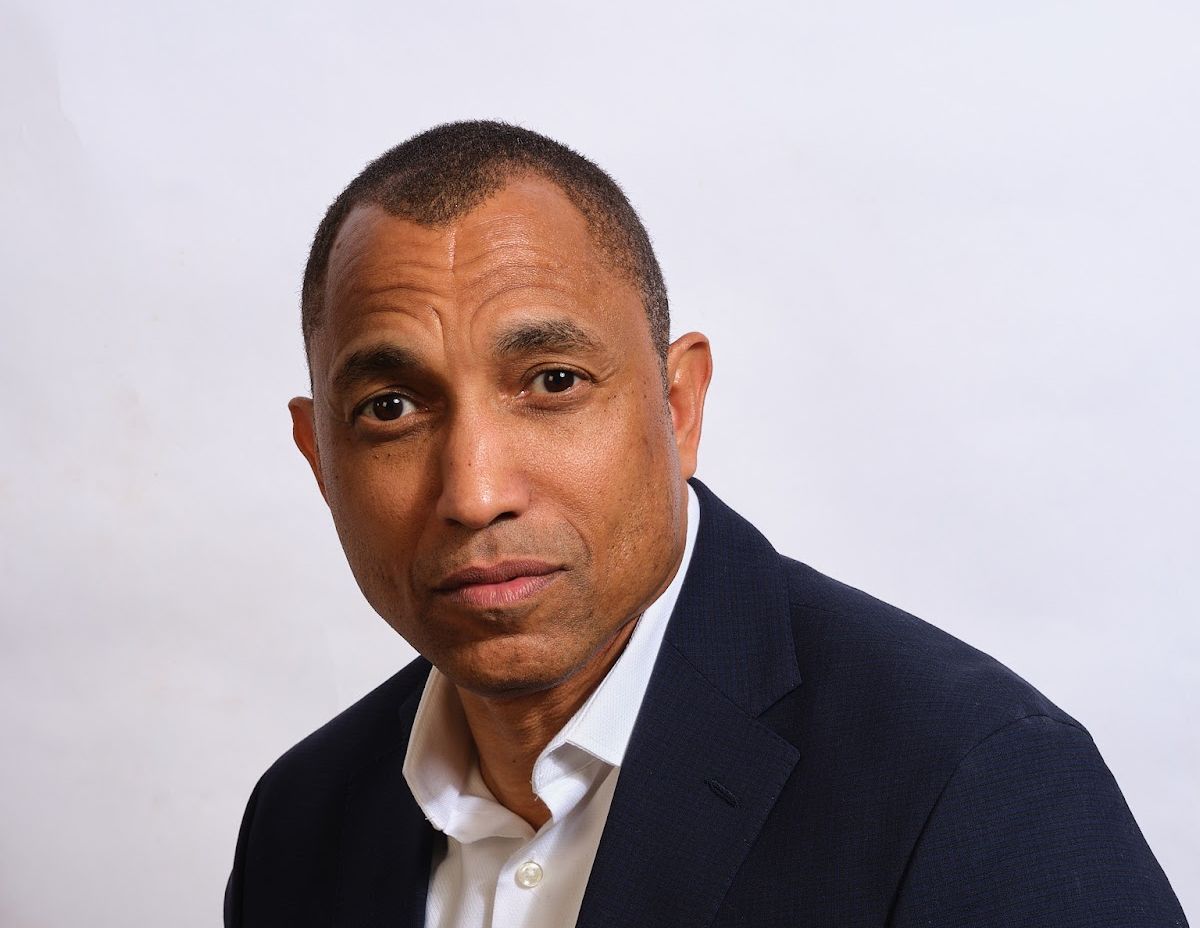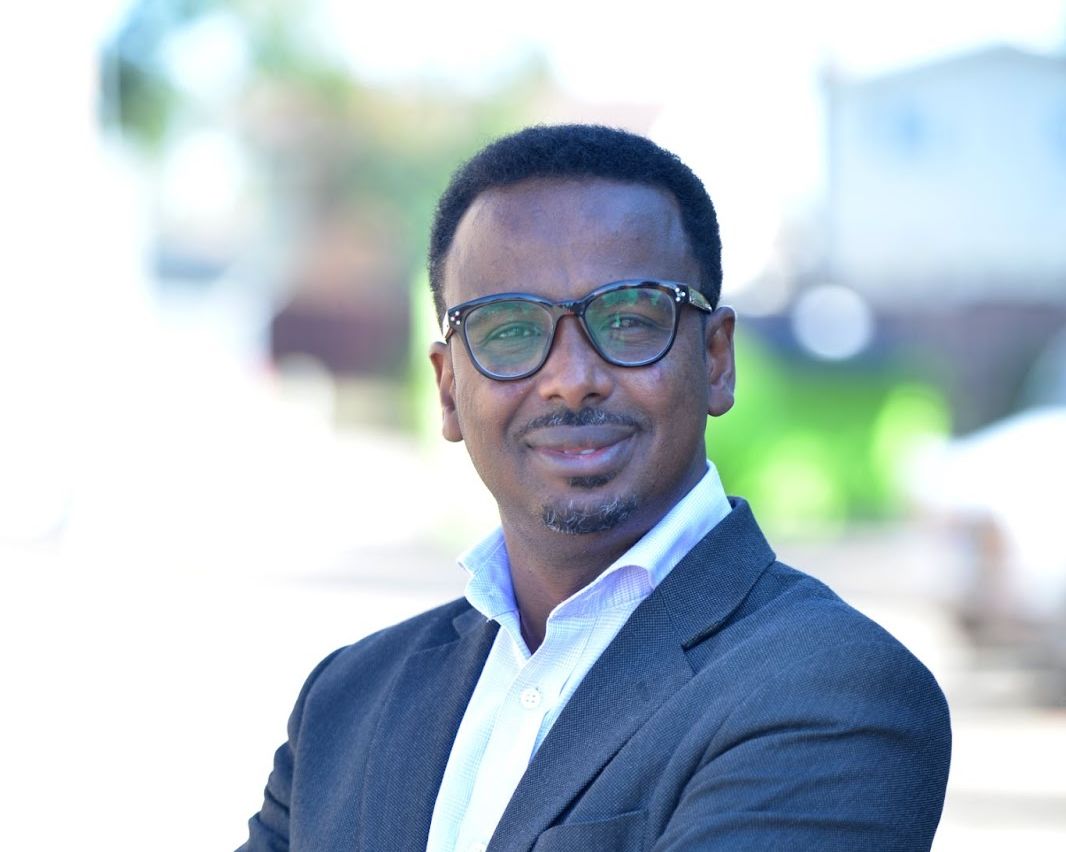Black Opportunity Fund calls for ‘an immediate stay’ of announcement of Black-led endowment fund RFP winner, citing concerns with process transparency
Why It Matters
The federal government says they will soon announce the winner of a procurement process to select the steward of a $200 million endowment fund for Black communities. One proponent, the Black Opportunity Fund, says the process used to select the winning proponent, however, lacked due diligence and transparency, undermining the credibility of whichever organization is selected.
This independent journalism is made possible by the Future of Good editorial fellowship covering the social impact world’s rapidly changing funding models, supported by Future of Good, Community Foundations of Canada, and United Way Centraide Canada. See our editorial ethics and standards here.

Craig Wellington, executive director of the Black Opportunity Fund, a charity that applied to manage the government’s $200 million Black-led endowment fund program. (Courtesy: Craig Wellington)
With the federal government set to soon announce the winner of a request for proposals competition to serve as the lead of a $200 million Black-led philanthropic endowment fund, one proponent, the Black Opportunity Fund, is crying foul.
In a letter sent by the charity to Minister of Families, Children and Social Development, Karina Gould, among others, Ray Williams, chair of the Black Opportunity Fund board, called for “an immediate stay” on the government announcing the identity of the winner of the RFP.
He also called on the government to initiate an “independent review” of the procurement, which Williams said lacked “due process.”
The Black-led endowment fund is one of the government’s banner philanthropic sector initiatives in support of Black communities. The fund is intended to help alleviate the significant funding disparities faced by Black communities in Canada, by providing a sustainable source of capital, long-term.
In the fall of 2022, the government launched a call for proposals to select a charity to manage and administer the fund. Several organizations responded, including the Foundation for Black Communities, a Toronto-based organization; Africa Centre, an Edmonton-based organization; and the Black Opportunity Fund.
On January 27, less than two months after the RFP closed, Black Opportunity Fund received an email from Service Canada saying their application had been rejected. The rationale provided was that the project proposal scored “scored low” on “project impact and results.”
Craig Wellington, the organization’s executive director, says it’s not possible for the government to have completed a rigorous evaluation process in such a short period of time.
“There is no government procurement process that can be done in eight weeks, including the Christmas holidays,” he said. “A $200 million endowment fund in six weeks [excluding Christmas]? It’s a joke.”
Wellington said Black organizations, like his own, are held to a very high standard of excellence, which he said the government has not lived up to with this procurement process.
“We know that as a Black-serving organization, when we fail, it’s perceived as a failure of all Black people,” he said. “So when we see a process from the government that is focused on our community and has a lower standard of excellence, that is extremely problematic.”
Wellington said after submitting his organization’s application, which was more than 500 pages and included 130 letters of support, he didn’t receive any substantive, further communication from the government before the rejection email. He said it’s unacceptable the government did not host interviews with competitive applicant organizations, like his own.
He compared this procurement to that of another one run in recent years — to identify a charity to manage and administer the government’s $300 million Equality Fund, which focuses on support for women and girls around the world. In that instance, 14 applicants who applied to manage the fund were interviewed, he said.
Hosting these interviews, Wellington added, provided the proponents and their partners with the chance to answer any of the government’s questions in detail.
The Ministry of Employment and Social Development Canada, however, rejects the idea that the procurement process lacked transparency or rigour.
“We take the process of selecting the most qualified candidates and organizations seriously,” said Saskia Rodenburg, a spokesperson for ESDC, by email. “All applicants’ were assessed by officials at ESDC based on their capacity to deliver on the goals of the Endowment Fund in an independent, fair, transparent, and objective manner.”
Rodenburg added that the criteria for selection is posted on the government’s website and said that “while a number of strong proposals were received, following a robust assessment of all the proposals…a single applicant was determined to have submitted the strongest proposal.”
Rodenburg said the government will provide more information about the winning proposal “in the near future.”
Some Black community leaders, however, are left feeling disappointed by the process.
Mide Akerewusi, the founder and CEO of fundraising consulting firm AGENTSC, said, given Black Opportunity Fund’s status and track record within the Black community, it’s “cause for concern” the organization wasn’t interviewed by the government.
“All of us, taxpayers who have paid into the fund already, have not been given a clear picture as to what the process for selection is,” he said. “It raises questions about the efficacy of the decision making process and of the transparency related to decision-making.”
Sharif Haji, executive director of the Africa Centre, disagreed, however.
Haji said he’s been through several government procurement processes before and that it’s “not unusual” for the government not to interview proponents. He says, like his colleagues at the Black Opportunity Fund, Africa Centre also did not receive an interview about his proposal. He learned late last week that his organization’s application, too, had not won the RFP.
Future of Good asked the Foundation for Black Communities about the status of their application and their perspective on Black Opportunity Fund’s concerns, but they declined to comment.
Haji said he’s disappointed that Africa Centre, the largest Black-led organization in western Canada was not selected, but added he’s comforted by the fact that the money will go to a Black-led organization.
“I’m not 100 per cent excited to be honest with you. But I will speak from the bottom of my heart: this is funding for Black communities and it will go to a Black-led organization. And I’m OK with that,” he said.
amanuel melles, executive director of the Network for the Advancement of Black Communities, agreed with Haji, noting that all of the proponents were “remarkable and competent Black organizations.”
He said he’s aware of the concerns raised by the Black Opportunity Fund and said he’s hopeful the government will respond appropriately. He added, however, that regardless of which organization is chosen, he’s satisfied by the process.
“From the large group of community leaders who we’ve spoken with, we believe that any one of those applicants is able to implement [the endowment] — because they are not going to implement it alone. They will work with the community.”
melles said he believes the Black-led endowment fund should not be viewed as the property of any one organization, but rather, that of the Black community at large.
“This is not an organization’s fund,” he said. “This is the Black community endowment fund. And whoever is managing it cannot make progress without the full participation of Black community leaders across the country.”
In addition, melles expressed concern about the way a heated discussion about the selection process might negatively impact Black communities.
“What the public will get out of this is that community leaders and organizations are caught up in another wave of this type of negative public and media relations that [will] affect, at the end of the day, our communities,” he said.
 Sharif Haji, executive director of the Africa Centre, said he is hopeful that with the Black-led endowment fund, the government will take “regional inequities” into consideration. He adds Alberta needs additional funds to support Black communities. (Courtesy: Sharif Haji)
Sharif Haji, executive director of the Africa Centre, said he is hopeful that with the Black-led endowment fund, the government will take “regional inequities” into consideration. He adds Alberta needs additional funds to support Black communities. (Courtesy: Sharif Haji)
A Black History Month photo-op?
Craig Wellington said he believes the government is set to announce the winner of the RFP process next week. He said the government has rushed the selection process in order to be able to make an announcement about the winner during Black History Month, which runs through February.
“We have to stop disrespecting the Black community,” he said. “But right now [the government is] focused on getting something done for Black History Month. That is so performative it’s embarrassing.”
The charity’s executive director said the approach taken by the government in the selection process is an “embarrassment” to the Black community. “This is a repeat of the very systemic, colonial, racist practice which we hear we’re supposedly trying to dismantle,” he said.
ESDC’s Rodenburg said, however, the selection of the winning organization was made following a lengthy and consultative process.
In May 2021, the Minister of Housing and Diversity and Inclusion engaged with more than 150 stakeholders from Black communities across Canada to gather input on the design of the fund, she said. In addition, in January 2022, the government launched a “call for concepts” process to gather ideas from Black communities to ensure the fund met their expectations, said Rodenburg.
“As with any open, fair, and transparent competitive process, the best and most qualified applicant is selected,” she said.
Clear though the process may have been, its design was fundamentally the wrong one for Black communities, said Akerewusi, who submitted a letter of support on behalf of the Black Opportunity Fund’s application, through the Black Canadian Fundraiser’s Collective.
“I have long felt that the government’s approach to this fund is inherently problematic, because it encourages competition amongst our leading Black community groups in Canada,” he said. “What we actually want and need is collaboration amongst these groups to ensure that Black communities actually get the best out of the fund.”
Akerewusi said the government’s process, of selecting just one organization to lead the fund, is incompatible with their fundamental objective, of supporting Black communities to thrive.
When it comes to investing in Black communities, Akerewusi said the government must not use a “colonized, arms-length approach,” but rather should seek to foster collaboration between groups.
He added he doesn’t believe it’s too late for this to happen with the Black-led endowment fund. He said he hopes the government brings together the main organizations who submitted applications for a discussion.
Not all Black leaders, however, are hopeful the process is extended.
“At the end of the day, we just want the government to move this into action,” said amanuel melles, citing the urgent need for investment in Black communities, especially given a possible recession on the horizon.
He added he believes it’s important for Black community organizations to come together to discuss this in a “collegial, collaborative community,” moving forward.
“My message to community leaders and allies is to step back and to look at the medium to long-term impacts of the public display of things that are negative which impact the image of the Black community,” he said.
